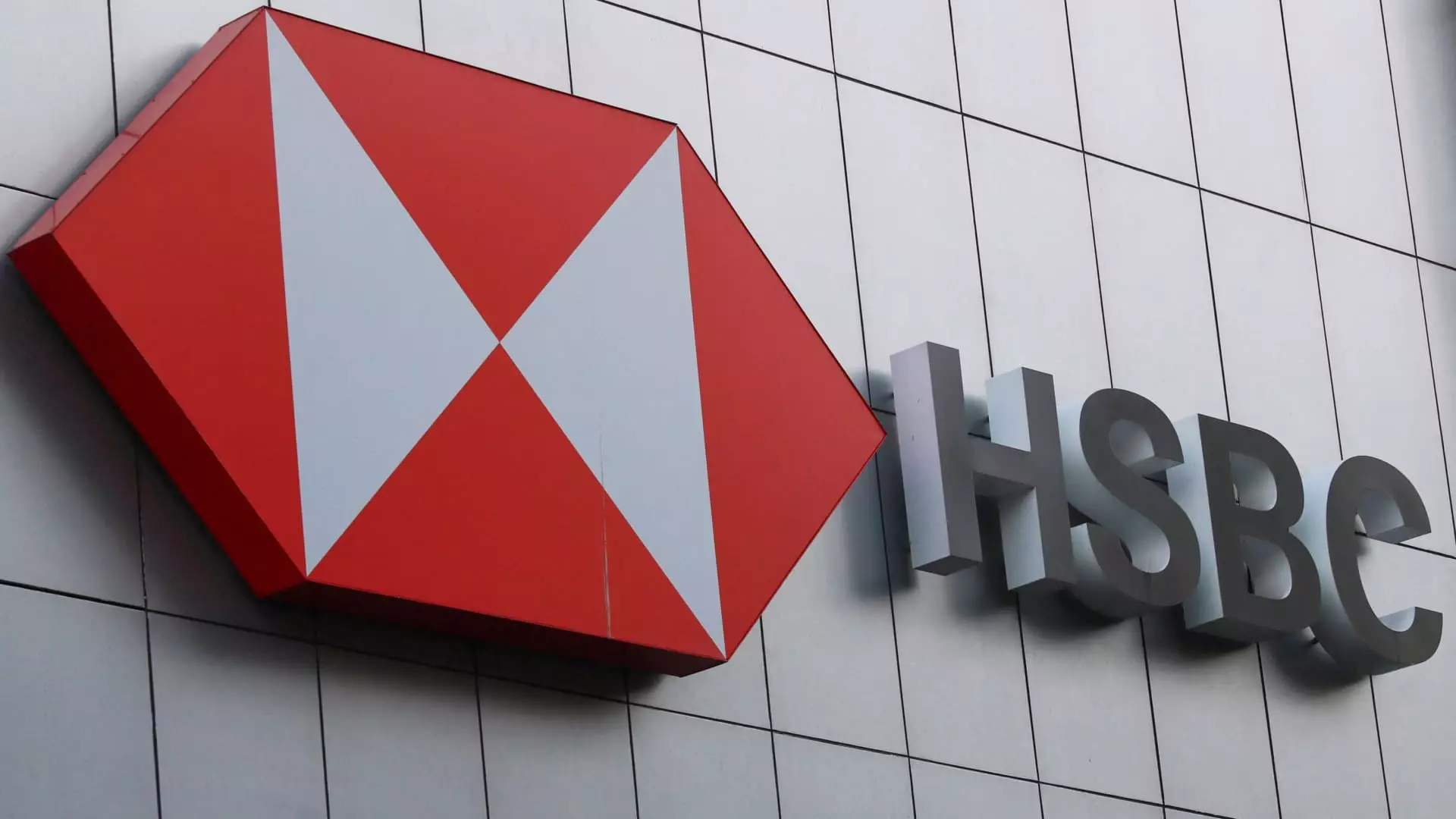HSBC, Europe’s largest bank, recently unveiled a significant $2 billion share buyback program alongside its annual financial results, indicating a robust strategic direction amidst a challenging economic landscape. The bank reported a modest 6.5% growth in pre-tax profit, amounting to $32.31 billion. This positive outcome was buoyed by the divestiture of its Canadian banking operations, which has allowed the bank to streamline its focus and enhance profitability.
Despite this profit increase, HSBC’s revenue saw a marginal decline, dropping to $65.85 billion from $66.1 billion in the previous year. This minor dip might seem unfavorable, but the overall pre-tax profit slightly underwhelmed market expectations, falling short of the LSEG mean estimate. The comparison reveals a subtle tension between solid operational results and market anticipations, prompting discussions about the bank’s capacity to exceed expectations in a volatile economic environment.
Examining the quarterly performance provides an additional layer of insight. The bank’s profit before tax for the fourth quarter surged almost 100% year-over-year to $2.3 billion, despite previous financial hurdles such as a hefty $3 billion impairment charge last year. However, during this latest quarter, revenue declined by 11%, which raises questions about the sustainability of HSBC’s recovery trajectory. Such discrepancies prompt analysts to scrutinize the underlying factors that may influence future financial health.
With a commitment to complete the share buyback by early 2025, HSBC’s initiative reflects confidence in its operational strength and future earnings potential. Morningstar’s analyst Michael Makdad posits that this buyback aligns well with market expectations, further underlined by HSBC’s ambitious cost-cutting goals targeting $1.5 billion annually by 2026. Such initiatives signal that the bank is taking a proactive approach to fortify its fiscal standing, showcasing strategic planning in navigating the currents of market volatility.
These results represent the first complete fiscal review under CEO Georges Elhedery, who took the helm in July following Noel Quinn’s retirement. Elhedery’s leadership is already characterized by significant restructuring efforts intended to modernize operations. The separation of HSBC’s business into “Eastern markets” and “Western markets” is a strategic pivot towards specialization, aimed at tailoring services to regional market dynamics.
Nonetheless, the ramifications of these changes are already visible, with the recent dismissal of about 40 investment bankers in Hong Kong, particularly within sectors like mergers and acquisitions, consumer markets, and real estate. This move raises questions regarding the bank’s commitment to efficiency versus potential job security for its workforce. Elhedery’s vision aims for a more focused and agile bank, but it must balance operational efficiency with the needs of its human capital.
Looking ahead, HSBC forecasts a slight dip in net interest income but plans to generate substantial cost savings through its restructuring. The projections for 2025 reflect cautious optimism, though they are tempered by the underlying challenges in the banking sector.
HSBC’s journey illustrates the complexities of leading a major financial institution through a period of transformation. The bank’s buyback and restructuring strategy demonstrate an awareness of the need to adapt in a rapidly evolving financial landscape, as it aims to satisfy both its shareholders and the broader market. As HSBC navigates these changes, the balance between profitability, efficient operations, and employee engagement will be essential in shaping its future.

